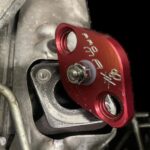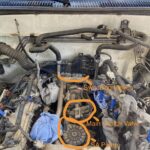Dealing with car trouble is stressful enough without the added worry of unexpected repair bills. If you’re searching “how much will car repair near me cost,” you’re likely looking for transparency and fair pricing. It’s essential to be informed and proactive when choosing a car repair shop to ensure you get quality service without breaking the bank. This guide will help you understand car repair costs and how to find a reputable and fairly priced mechanic in your area.
Before you even search for a “car repair near me,” it’s wise to do some initial groundwork. Just like finding a good doctor, finding a trustworthy mechanic requires a bit of research. Your best defense against overpaying or receiving subpar work is to identify a reliable repair shop before your car actually needs urgent attention. Don’t wait until your check engine light is flashing to start looking.
One of the first steps is to tap into your network. Ask friends, family, or colleagues for recommendations. Personal experiences can offer valuable insights into the quality and pricing of local car repair shops. In addition to word-of-mouth, online reviews are an invaluable resource. Websites and platforms dedicated to customer reviews can provide a broader perspective on a shop’s reputation. Look for consistent positive feedback regarding fair pricing, quality of work, and customer service.
When researching potential repair shops, also check if they employ ASE (Automotive Service Excellence) certified mechanics. ASE certification is a widely recognized industry standard, indicating that mechanics have met specific competency standards through testing and experience. While not the only indicator of quality, ASE certification can give you added confidence in the expertise of the mechanics working on your vehicle.
If your check engine light comes on, consider a preliminary step before heading straight to a repair shop. Many auto parts stores offer free computer diagnostic tests. These tests can provide you with the error codes triggering the light, giving you a baseline understanding of potential issues. While this test is not a comprehensive diagnosis, it can be helpful to compare the findings with the repair shop’s diagnosis and ensure transparency.
Understanding Your Rights and Authorizations
It’s crucial to be aware of your rights as a consumer when it comes to car repairs. Legally, repair shops are prohibited from engaging in deceptive practices. This includes making false statements about necessary repairs, claiming work was done when it wasn’t, misrepresenting parts as new when they are used, and advertising services they don’t intend to provide as advertised.
Furthermore, the Magnusson-Moss Warranty Act protects your rights regarding your car’s warranty. You are generally not required to use dealership service or manufacturer parts for routine maintenance or repairs to keep your warranty valid. Independent repair shops can perform these services without voiding your warranty, often at a more competitive price point.
A critical aspect of managing car repair costs is understanding authorizations. Before any inspection, testing, diagnosis, or disassembly of your vehicle for an estimate, you should receive and sign a written authorization. This document should detail the actions being taken, associated charges, and whether any parts will be removed or the car disassembled during the diagnostic process. It’s important to ensure you understand if there are fees associated with diagnosis, regardless of whether you proceed with the repair at that shop.
You might be presented with both an inspection authorization and a repair authorization simultaneously. These should be separate authorizations, possibly on the same document but requiring distinct signatures. Read each carefully before signing. The repair authorization, if you decide to proceed, should clearly outline the work to be done, costs, estimated completion date, and payment terms. Always ensure you receive a copy of all signed authorizations for your records.
Smart Practices to Avoid Overpaying for Car Repair
To stay in control of your car repair expenses and avoid potential overcharges, there are several “do not” rules to follow. Never allow your car to be inspected or worked on without first having a signed inspection authorization in your possession. Verbal agreements are insufficient; always get everything in writing.
Avoid letting anyone else negotiate repairs on your behalf. Deceptive shops might use this as an opportunity to inflate charges by claiming someone else authorized additional work. Protect your personal information. Do not disclose your credit card, driver’s license, or other sensitive details unless you are explicitly applying for loan approval or are ready to pay for completed and authorized repairs. Even when providing this information for loan applications, explicitly state in writing that it does not authorize any inspection or repair work. These are separate authorizations requiring your signature. Dishonest shops may try to initiate work without proper authorization by exploiting personal information provided for other purposes. Finally, and for your own protection, never leave valuables in your car when it’s at a repair shop.
Common Car Repair Scams and How to Spot Them
Understanding common car repair scams can help you identify and avoid them, ultimately saving you money. Be wary of shops that wait until your car is disassembled on a lift before seeking repair authorization. This tactic puts you in a difficult position, potentially forcing you to agree to inflated prices to avoid further issues or fees for reassembly.
Another common tactic is showing you dirty oil with metal shavings as proof of transmission problems. While some debris is normal in used transmission fluid, it doesn’t automatically mean you need a new transmission. Be skeptical of this diagnosis without further independent verification. Unauthorized repairs are a significant red flag. A shop should never begin work without your explicit authorization and then charge you for it. Verbal estimates can also be problematic. Always insist on a written estimate, and be wary if the final bill significantly exceeds it without prior written approval for the additional costs.
Beware of advertised “free towing” or “free rental car” services that come with hidden costs or conditions. Similarly, if a shop claims warranty coverage but then charges you for warranty work, question it immediately. In cases where you’re financing repairs, shops should obtain written loan approval before starting work. If the loan is denied after work is completed, you might still be liable for the bill if deception cannot be proven. Always get written approval for any additional work beyond the original agreement. Finally, some shops charge for computer diagnostics without informing you of the fee beforehand. Ask upfront about diagnostic charges.
Resolving Billing Disputes
If your final bill is significantly higher than the estimate, or if you believe you’ve been overcharged or charged for unauthorized work, challenge the bill. Request a written explanation for the cost difference and keep this, along with your estimate, final bill, and all other paperwork. Request the return of your old parts. While some parts may be returned to suppliers for credit, you are generally entitled to your replaced parts, which can be helpful for a second opinion.
Even if you dispute the bill, understand that a mechanic has the legal right to retain your car until the bill is paid. If you are unsatisfied with the explanation and believe you’ve been overcharged, you can file complaints with consumer protection agencies like the Attorney General’s Office or the Better Business Bureau. You can also pursue legal action in small claims court.
For an independent assessment, take your car to another repair shop and request an inspection of the previous repairs, providing them with a copy of your itemized receipt. A written report from a second mechanic can strengthen your position if you seek a refund or dispute the original bill. If you paid by credit card, you have the right to dispute the charge with your credit card company for unsatisfactory repairs. This dispute must be submitted in writing within 60 days of your credit card statement date. Include all supporting documentation, like receipts and the second mechanic’s report, and send your dispute to the billing inquiry address, not the payment address. The Federal Trade Commission (FTC) provides a sample dispute letter on their website to guide you through this process. Your credit card company will investigate and determine the outcome of the dispute.
By being informed, proactive, and assertive, you can navigate the car repair process with greater confidence and ensure you’re paying a fair price for quality service when searching “how much will car repair near me cost.”


